








BY DAVID SAFFER
Israel and Hamas finally agreed a ceasefire and hostage deal last night after months of deadlock.
Thirty three hostages will be released over the next six weeks. This includes female soldiers and civilians, men age over 50, and ill or wounded people.
American, Qatari and Egyptian officials worked round the clock in Doha to get an agreement finalised.

Israel’s security cabinet then government are expected to approve the deal, which is being finalised, today. It comes into effect on Sunday.
Ninety-eight hostages are in captivity in Gaza after 468 days. Israeli authorities believe a third are dead. At least three hostages will be released each week during the ceasefire. Israel will release 30 terrorists for each kidnapped civilian and 50 terrorists for each female soldier released.
Prime Minister Benjamin Netanyahu thanked US President Joe Biden and President-elect Donald Trump for their efforts in helping secure a deal. Netanyahu and Biden will meet in Washington “soon”.
Trump said he will use the Gaza ceasefire


deal to expand the Abraham Accords.
“My National Security team will continue to work closely with Israel and our Allies to make sure Gaza NEVER again becomes a terrorist safe haven,” he wrote.
Biden welcomed the news after 15 months of terror. “Soon the hostages will return home to their families,” he said. “Under this deal, we are determined to bring all of them home.”
President Isaac Herzog addressed the nation last night and backed the deal despite challenges.
“This is the right move, this is an important move, this is a necessary move,” he said. “There is no greater moral, human, Jewish,
or Israeli obligation than to bring our sons and daughters back to us, whether to recover at home, or to be laid to rest… Let there be no illusions, this deal, when signed, approved, and implemented, will bring with it deeply painful, challenging and harrowing moments. It will also present significant challenges. This is not a simple situation, it is among the greatest challenges we have ever known… We must utilise every diplomatic and security tool to uphold the security interests and defend the safety of all the Israeli people… Our nation has an open, bleeding wound that cannot heal until all our sisters and brothers return to their homeland.”
Herzog thanked all parties that pushed for the release of the hostages and a special thanks to Biden and his administration, and Trump and his team.
UK Prime Minister Keir Starmer said the deal was “long overdue”, whilst German Chancellor Olaf Scholz noted that deal should open the door to a permanent end to the war.
Continued on page 3












Continued from page 1
French President Emmanuel Macron observed: “The agreement must be respected, the hostages freed, the Gazans rescued, and a political solution must come.”.
European Commission President Ursula von der Leyen noted: “This brings hope to an entire region. Both parties must fully implement this agreement, as a stepping stone toward lasting stability in the region and a diplomatic resolution of the conflict.”
Israeli media has reported murderers will not be released to Judea and Samaria, Nukhba forces involved in the October 7 massacre will not be released. Israel have also refused to release the body of former Hamas leader Yahya Sinwar, at least in the first stage. There are suggestions it depends on information about Avera Mengistu and Hisham al-Sayed, and the bodies of Hadar Goldin and Oron Shaul, held in Gaza for over 10 years.
A third and final stage involves the reconstruction of Gaza and return of remaining hostages’ bodies.
Netanyahu has been criticised by hostage families over the time taken to strike a deal whilst dismantling the military threat of Hamas in Gaza and attempting to keep his coalition in place.
Netanyahu told hostages’ relatives at meetings on Tuesday that he was ready to agree a lengthy ceasefire, provided the hostages return. “This is a matter of days,” he said.

Netanyahu told another group the rules of the game “change substantively” after Trump takes office.
“Every violation of the ceasefire will be met with a fierce and powerful response and a form of combat we haven’t seen yet,” he added.
The Israeli negotiation team included Mossad Chief David Barnea, Shin Bet Chief Ronen Bar and IDF’s Major General Nitzan Alon, Biden’s envoy Brett McGurk and Trump’s envoy Steve Witkoff.
While Israel will slowly withdraw from Gaza and Palestinians begin returning home, the IDF will maintain a buffer zone to protect nearby communities.
The deal includes humanitarian aid, logistical supplies and equipment for Gaza. Negotiations for the second phase, which will see remaining hostages released, will start on the 16th day of the ceasefire.
National Security Minister Itamar Ben-Gvir threatened to resign from the coalition and previously had prevented Netanyahu securing deals but was outnumbered in a vote since Foreign Minister Gideon Saar joined the coalition.
Ben-Gvir called on Finance Minister Bezalel Smortrich to back him. Smotrich stated an agreement would be “catastrophic” for Israel’s security.


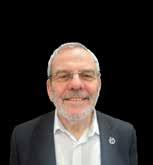




BY DAVID SAFFER
King Charles will attend the 80th anniversary of the liberation of Auschwitz on January 27.
Prior to the commemorations, on what is his first foreign trip of 2025, the King will meet Polish President Andrzej Duda and members of the local Jewish Krakow community.
World leaders will attend the service but only Auschwitz survivors will speak.
“There will be no political speeches,” said Piotr Cywinski, Auschwitz-Birkenau memorial and museum director. “We want to focus on the last survivors that are among us and on their history, their pain, their trauma and their way to offer us some difficult moral obligations for the present.”
This is the King’s fifth trip to Auschwitz. He visited in 2008 with the Queen and in 2010 as part of a European tour with Hungary and Czech Republic.
Prior to travelling to Auschwitz, the King will meet people involved in education projects for future generations at Buckingham Palace, including Holocaust survivor 94-year-old Manfred Goldberg who survived Riga Ghetto, Stutthof concentration camp and a death march before being liberated at Neustadt in Germany in May 1945.
News of the King’s attendance will be welcomed by British Jewry. But it is not clear whether Prime Minister Benjamin Netanyahu will represent Israel as the International Criminal Court has issued an arrest warrant against him and former Defence Minister Yoav Gallant of war crimes in Gaza.
Israeli officials have stated that no invitation has been received. Education Minister Yoav Kisch is expected to attend in the absence of Netanyahu and President Isaac Herzog.
Duda, however, has called on the Polish government to guarantee Netanyahu will not be arrested if he attends and has written to Polish Prime Minister Donald Tusk. The Polish leader is confident an ‘adequate’ formula will satisfy international legislation due to the special symbolic Auschwitz anniversary. Duda wants assurances Netanyahu’s visit will be “unhindered”.
Last month, Polish newspaper Rzeczpospolita reported Netanyahu had not been invited.
Israel’s Foreign Ministry is continuing to fight the ICC charges by chief prosecutor Karim Khan, who also charged Hamas leaders Yahya Sinwar, Ismail Haniyeh and Mohammed al-Masr with war crimes from at least October 7 2023.
Netanyahu labelled the ICC decision last year “outrageous”, a “moral outrage of historic proportions” and “everlasting mark of shame” on the ICC. Netanyahu added that Khan had created a “twisted and false moral equivalence” between Israeli leaders and the “henchmen of Hamas”.
“This is like creating a moral equivalence after September 11 between
President Bush and Osama Bin Laden or during World War II between FDR and Hitler,” he noted.
Netanyahu accused Khan of attempting to deny Israel a right of self defence.
He added: “Khan takes his place among the great antisemites in modern times. He now stands alongside those infamous German judges who donned their robes and upheld laws that denied the Jewish people their most basic rights and enabled the Nazis to perpetrate the worst crime in history.”
The US, UK, German, French, Italian and Czech governments spoke out against the warrants. Hungarian Prime Minister Viktor Orbán rejected the ICC directive and invited Netanyahu to Budapest.

But Spain, the Netherlands, Belgium and Slovenia will enforce the ICC decision.
The King has long been involved in Holocaust remembrance, commissioning portraits of seven Holocaust survivors in 2022. The initiative featured in a BBC Two documentary ‘Survivors: Portraits of the Holocaust’’.
Helen Aronson was painted by Paul Benney, Lily Ebert by Ishbel Myerscough, Manfred Goldberg by Clara Drummond, Arek Hersh by Massimiliano Pironti, Anita Lasker Wallfisch by Peter Kuhfeld, Rachel Levy by Stuart Pearson Wright and Zigi Shipper by Jenny Saville.
The then heir to the throne said the collection was a reminder of history’s darkest days and humanity’s interconnectedness to create a better world for future generations.
Speaking at the 75th anniversary of the liberation of Auschwitz-Birkenau, he noted: “The scale of the evil was so great, the impact so profound, that it threatens to obscure the countless individual, human stories of tragedy, loss and suffering of which it was comprised.”
The King’s grandmother, Princess Alice of Greece, saved a Jewish family in 1943 by hiding them in her home. She is buried on the Mount of Olives, has a tree in her name at Yad Vashem and is counted among the Righteous of the Nations. Her actions have given the King’s family “immense pride”.
International Holocaust Remembrance Day was established by the United Nations in 2005. Yad Vashem runs events, exhibitions and has resources to reflect, learn and remember.
Auschwitz-Birkenau was the largest of the death camps where of 1.1 million people murdered by the Nazis during World War II about 1,000,000 were Jews. Some 70,000 Poles, 21,000 Roma and Sinti, 15,000 Soviet POWs and 12,000 prisoners of other ethnic backgrounds were also killed.
The former Nazi death camp attracted 1.83 million visitors in 2024, a 10-percent
increase on 2023, but down on pre-pandemic record figures of 2.3 million in 2019.
Auschwitz-Birkenau Memorial and Museum director, Piotr Cywinski, said: “A visit to an authentic remembrance site such as Auschwitz cannot be compared to a visit to any other museum, including those exploring similar themes. It should be a life-changing experience, our mission is to allow every visitor to experience their own rite of passage and reflect on
one’s sense of responsibility today.” Poles, according to the museum’s press office, accounted for a quarter of visitors to Auschwitz-Birkenau last year. Most visitors were Britain, Spain, Italy and Germany. Ninety percent were on guided tours in 20 languages. The museum’s website had 2.6 million followers and over 750 million views of posts. The museum expanded its online presence with virtual tours last year.

BY ADAM MOSES
President Isaac Herzog has awarded the Israeli Presidential Medal of Honour to Jewish and non-Jewish leaders from around the world.
The accolade took place at Herzog’s residence in Jerusalem in recognition of long-standing contributions to the State of Israel and Jewish people. Herzog recognised the leaders for unwavering commitment over decades and particularly since the October 7 terror attack.
Recipients were Maurice Levy (France), Malcolm Hoenlein (USA), Julie Platt (USA), Sir Frank Lowy (Australia and Israel), Sir Trevor Chinn (UK), Brigitte Zypries (Germany) and Mark Leibler (Australia).

The medal was an initiative of Israel’s ninth resident, Shimon Peres, and was first awarded in 2012.
Herzog addressed the ceremony and confirmed the IDF had recovered the body of Youssef Ziyadne with evidence of his son, Hamza, in Gaza. Both were held hostage for 460 days.
He added, “The Medal of Honour is presented to distinguished figures. It is

an opportunity to pause, to recognise the hardships we overcame and road we traveled thanks to role models. And now, more than ever. A war was forced upon us is still disrupting our lives on various fronts, with enormous pain, and pride. Ninety nine sisters and brothers, sons and daughters, mothers and fathers, are still held in brutal captivity in Gaza. They have not seen the light of day, nor a glimpse of hope. As we speak, Jews all over the world are assaulted and insulted, Diaspora communities are targeted, antisemitism is prevalent because the world’s only Jewish state is demonised and delegitimised, and our social cohesion is challenged.”
Herzog added: “I believe in the people of Israel, in the State of Israel and the eternity of Israel. This period of unprecedented turmoil and challenges is precisely the moment to applaud those who light our way. You have all made careers of speaking truth to power, labouring behind the scenes and withstanding public criticism, consciously taking risks on behalf of Israel, and working tirelessly to strengthen our nation.”
Speaking on behalf of recipients, Platt said: “You have been enriched by the opportunity to lead, to support Israel, of course, since October 7, but for all of us, decades of love and devotion to Am Yisrael. We feel the pain of a Jew in Ukraine, Montreal, Crown Heights, the same as we feel the pain of a Jew in Be’eri, Metula, or Hostage Square. And we feel the joy our heritage in all the corners of this globe as if it were in our own backyard.”
Born in Morocco, Levy has fostered business, social and political ties between France and Israel. A steadfast supporter for Israel and combating antisemitism across Europe, he is a Commandeur of the French Légion d’Honneur and Grand Officier of the Ordre National du Mérite. Hoenlein served for decades at the
Conference of Presidents of Major American Jewish Organisations. A key figure in strengthening US-Israel relations, he has advocated Israel’s security and Jewish unity, gaining support for Israel among global leaders and in US politics.
Platt serves as Chair of the Jewish Federations of North America. She has strengthened North American Jewish community and Israel ties, fostering Jewish identity among Jewish children in the US. She has long supported Israel as Chair of the Board of Trustees at the University of Pennsylvania, advocating safety of Jewish students and Israel’s right to self-defence.
Holocaust survivor Lowy was born in Czechoslovakia and fought in Israel’s War of Independence in 1948. A leading philanthropist, he has aided Israel and Australia relations. Supporting Israeli initiatives, most recently the National Library in Jerusalem.
Chinn has been a most prominent leader of British Jewry including as Chairman of UJIA and founder of BICOM. He has worked tirelessly to strengthen Israel-UK relations within political, diplomatic and public spheres in the UK.
Zypries, former German Minister of Economic Affairs and Justice, has been an important political figure and President of Israel-Germany Association. She has contributed ties between Germany and Israel, and Israel and Europe, through legal, economic and cultural cooperation. Zypries has defended Israel’s reputation in the face of antisemitism and anti-Israel boycotts.
Leibler is a leading lawyer and Jewish community leader in Australia who has worked for human rights, Israel and Jewish community. For decades, he has been a key figure of the Jewish Agency for Israel and Keren Hayesod, combatting antisemitism and anti-Israel sentiments.
Brighton & Hove Jewish community protected a memorial in Palmeira Square to the victims of Hamas attacks as a pro-Palestinian march assembled nearby last Saturday.
The memorial has been vandalised over 30 times since November 2023.
Jewish residents held posters of 10/7 victims.
Marchers chanted ‘From the River to the Sea’ slogan. One pro-Palestinian activist shouted abuse at family members of murdered victims. A Holocaust denier charged with a terror offence was spotted on the march. A woman on the march made abusive gestures as she passed people holding posters of murdered victims.
Adam Ma’anit, whose teenage relative Ma’ayan Idan was murdered by terrorists, said: “This is the third time that the march has started here. There are plenty of other places they could have gone, but they chose to provoke the Jewish community by assembling so near to the memorial where we hold daily services to remember each of the victims of that awful atrocity. It’s despicable.”
The Brighton marches have seen genocidal chants, support for terrorists and antisemitism.
There are two synagogues close to where the march started. Shabbat services were disrupted and Jewish congregants were fearful and intimidated.

A recent freedom of information request saw antisemitism had tripled in Brighton since the Hamas attacks. Jewish people are the most targeted group for religious hate crimes.
Members of the Brighton Jewish community have written to Chief Constable Jo Shiner urging Sussex Police to prevent future protests near the memorial and synagogues.
“Given the disruption and threat we hope this will never be allowed to happen again,” said Ma’anit.
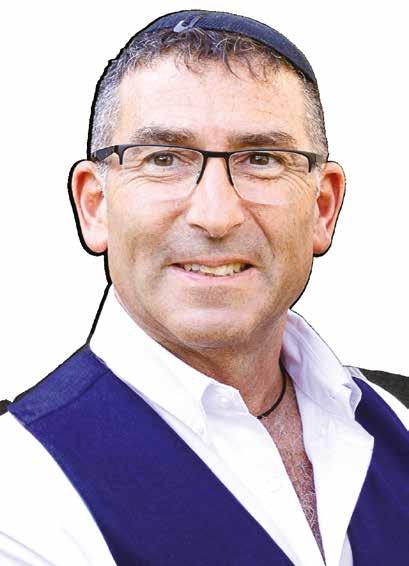









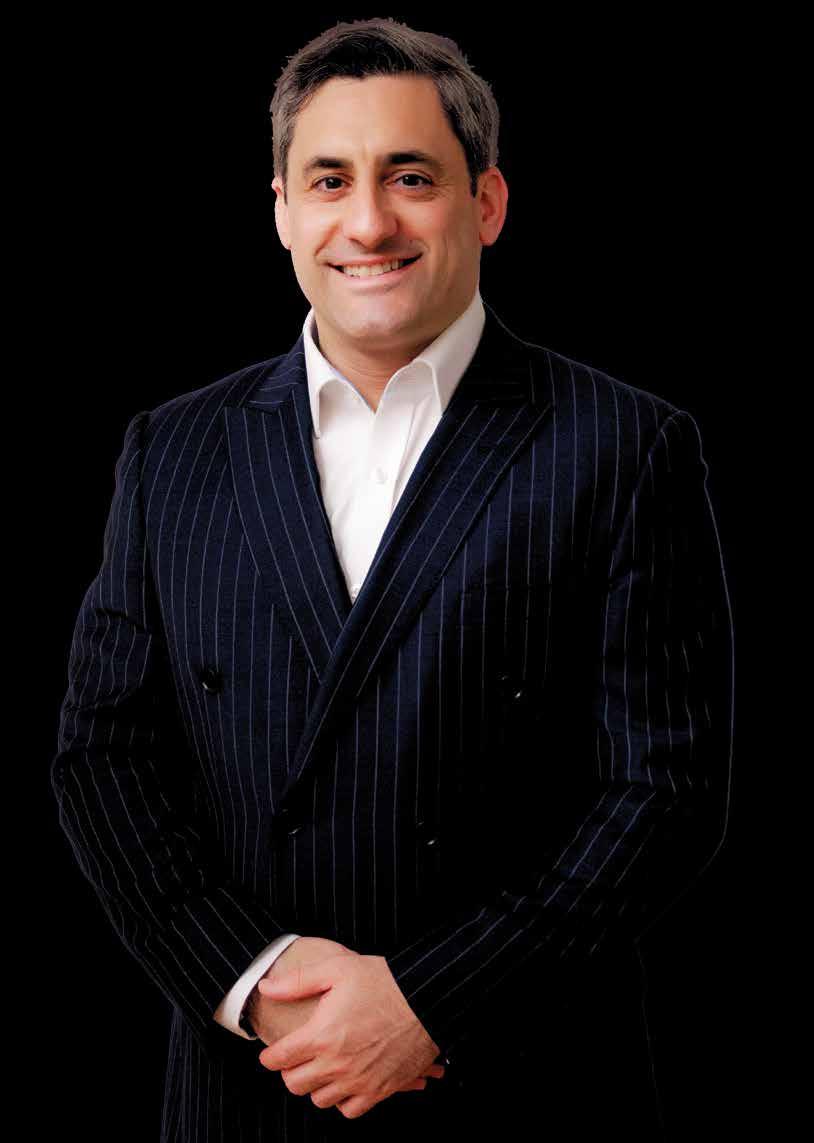





Campaign Against Antisemitism has called on the Metropolitan Police Service to remain resolute over a Palestine Solidarity Campaign march on Saturday.
The Met has not banned the march but PSC demonstrators cannot assemble or conclude the rally around the corner from a central London synagogue as Shabbat services end.
The Met has imposed basic conditions under the Public Order Act but attempts are being made to withdraw them including a Parliamentary Early Day motion sponsored by John McDonnell MP.
CAA have acted because 12 months ago, Jewish parents and children were afraid to walk home from synagogue services because of PSC marches taking place nearby. Police stood by synagogue entrances and were stationed around the area.
CAA said the fear was “palpable” given what had happened on previous marches.
A spokesman noted: “The Met is being told by the PSC that their march has to be on a Saturday, it has to be just after Shabbat services, and it has to form up or conclude around the corner to a major central London synagogue.
“In making that absurd argument, the Jewish community is being gaslit by the organisers of the march and their allies, who claim to be incredulous that Jews might be intimidated by people marching

the streets, demanding ‘intifada’ and the like, as they usually do. To help make their point, they are parading a handful of Jews who say that they support the marches, but this is a well-worn tactic that uses a few token Jews in an attempt to override the legitimate concerns of the actual mainstream Jewish community. It is transparently deceitful and shows utter disdain for British Jews.”
CAA added: “These are London’s streets, and they must be made safe again for all Londoners, including Jews. These marchers have had the run of the capital for far too long.
“The Met is absolutely right to insist on using its powers under the Public Order Act to prevent demonstrators from marching in the vicinity of a local synagogue this Saturday. Our only complaint is that these measures are still too limited, and come after more than a year of our streets resounding to chants exhorting violence while thousands of people happily walk alongside antisemitic and extremist placards. The Met has finally drawn a line in the sand, it is the bare minimum and it must stand by it. In doing so, the Met has the full support of the Jewish community, including us at CAA. We will be watching closely to see how the day is policed.”
AJEX presented accolades at the annual JFS Combined Cadet Force awards.
The main awards were given to Cadet Corporal of Horse, Harry Gordon (Most Outstanding Cadet), Yair Josebashvili (Max Karo Trophy for Most Improved Cadet) and Itamar Mason (Most Outstanding Recruit).
The awards were presented by AJEX Trustees Mike Bluestone and Jonathan Kober, who commended the cadets for their impact on the AJEX community.

The JFS CCF Cadets engage in activities to foster leadership, discipline, teamwork and personal growth. They participate in military training including drill practice, fieldcraft and weapons safety while developing leadership skills within their units. Adventure training, such as climbing, kayaking and trekking, helps build resilience and confidence, while parades and ceremonies, including Remembrance Day events, instil a sense of pride and discipline. Cadets explore STEM projects, learn practical skills such as first aid and navigation, and attend residential camps for immersive training alongside other CCF units. Physical training and competitions promote health and wellbeing, while volunteering and community
service encourage a sense of civic duty. The JFS CCF integrates Jewish values and practices into its programme. Through partnerships with military and civilian organisations, cadets gain exposure to service personnel and veterans, creating opportunities for collaboration and camaraderie. The programme equips participants with confidence, resilience and a sense of achievement, offering an enriching extracurricular experience.
Yair said: “I have been a cadet for almost two years and it has had a great impact on me. The staff are always there to support you, and the other cadets are striving to make the best environment for anyone that joins. When I march at The AJEX Parade, I feel the connection and joy of being part of the Jewish and CCF community.”
Harry noted: “Everyone in the CCF has been outstanding. It’s been amazing to see how far the JFS CCF has come since I joined in its founding year. I’m proud to have played a part in the amazing growth so many students, staff and adult volunteers have made possible.”
Mason added: “I have really enjoyed being part of cadets this year and all the activities we do. The award is like a cherry on top for me!”
•
• Helped
• Contact our specialist team
BY ADAM MOSES
Hezbollah planned to launch an October 7-style attack from Metula on the northern border of Israel.
Details of a Gaza-style raid has been revealed by Chabad emissary Rabbi Moshe Sasonkin, a shaliach for 35 years in Metula, the northernmost Israeli town just 2km from Kfar Kila.
Metula had a population of around 2,000 Israelis, few remain since Hezbollah targeted the town the day after 10/7.
David Azoulai, regional council head, is determined to rebuild the town but with 60 percent of buildings destroyed it will take years. We have been the “most bombarded”, he recently told reporters.
Hezbollah’s terror infrastructure in Kila was destroyed by IDF forces in a series of strikes towards the end of 2024.
Whilst a ceasefire is still holding, Israel Defence Forces has released chilling details of Hezbollah’s intentions in documentation found in Kila.
Material includes information on lay leaders in Metula including Sasonkin, a shliach for 35 years.
He reportedly told Chabad: “Intelligence found in Hezbollah’s underground bunkers was a list of the most important people in Metula, the head of the council, council members, and the head of security. Our house was also ‘honoured’ to be marked on the terrorists’ map, along with
a precise description of our car. This was a detailed plan for a massacre similar to October 7.”
IDF operations in Kila revealed Radwan Force’ terrorists were operating from the Lebanese village.
“Almost every house, even if it appeared to be a residence of a family of ‘innocent civilians’ contained a stockpile of weapons, including RPG missiles and other lethal munitions, and thousands of terrorists were trained and ready to use this weaponry to attack,” Sasonkin reportedly said.

Metula, and cause a hostage crisis or worse before anyone could respond in time,” he reportedly said. “It’s likely even he didn’t realise just how prepared Hezbollah was for an attack on northern communities. But his words made it less surprising to me when it became clear just how ready and trained they were for such a horrifying assault.
“When IDF forces entered the village of Kfar Kila, they discovered a docu-
“Thousands of terrorists were trained and ready to use this arsenal to attack the north in the same way Hamas attacked the south,” Sasonkin reportedly said.
Civilians and security squads wouldn’t have been able to thwart an attack.
Sasonkin observed: “The terrorists could have easily infiltrated and carried out their murderous plot without resistance. Each one of us is a living neis. We’ve all experienced a miraculous salvation. There’s no logical explanation what stopped the terrorists in Lebanon from carrying out their plans on October 7, just like the terrorists in Gaza did in the south.”
“They planned it for years, built infrastructure, trained killers, gathered weapons, and were ready to strike,” Sasonkin added. “I asked IDF officials whether Kfar Kila still poses a threat. The response was that after the IDF’s operations against Hezbollah over the past year, especially since the ground operation, the area is mostly desolate.”
Sasonkin heard about the potential of a deadly attack from a reserve officer living in the area who attended Torah shiurim during Chanukah.
“Hezbollah terrorists could breach the border at any moment, easily overrun
ment containing highly detailed plans for a massacre similar to the one on October 7. Now, after the cease-fire, there’s hope that Metula’s residents will finally return to their homes.”
According to Sasonkin the “harrowing document” outlined how homes in Kila had weapons including anti-tank missiles and lethal munitions.
Metula dates back to the Roman and Byzantine periods. When the State of Israel was established, talmudic scholars from Tzfat moved to Metula, which also included Holocaust survivors. During the 2006 Lebanon War, Metula became a ghost town due to Hezbollah rockets. From the Dado Lookout the Hula valley, Mount Hermon, Upper Galilee, Golan Heights and Lebanon is visible.

As the festival of light nears Paperweight throws light on how the cost of living is affecting so many
The very real economic and legal impact of life’s challenges happen in the Jewish community too. Even if we don’t talk about it!
None more so at present than the rising cost of living, which is increasingly casting a heavy shadow across the community, as debt and financial challenges take their toll. These issues are rarely addressed openly, yet they affect countless individuals and families. Many in the community are overwhelmed by layers of stress. Often the fall-out from divorce, bereavement, job loss and more. This is made worse when coupled with layers of bureaucracy in so many aspects of life, when interacting with banks, insurance companies, or dealing with services, or lack of, from local authorities and benefits offices. Navigating these systems can become an immense load to carry, leaving individuals feeling frustrated and alone.
The community’s best kept secret
Amid this growing crisis, Paperweight is a lifeline, a beacon of hope, removing each layer of complexity. Operating quietly behind the scenes, working confidentially, the charity provides free guidance, advocacy and resolution to those grappling with life’s challenges.
Since its inception, Paperweight caseworkers have assisted over 20,000 people, helping individuals and families regain control of their lives. Despite this remarkable impact, the charity has remained one of the community’s best-kept secrets.
A unique model of practical support
Paperweight’s work is proving vital in addressing the very real struggles faced by many in the community. The charity is a unique model of practical support, one that has been steadily growing in demand as economic pressures increase.
Paperweight’s helpline now receives an average of 15 new calls every day, a number that continues to rise.
As Paperweight CEO, Bayla Perrin says, “Debt and life’s challenges weigh heavily on many, but our work illustrates how effective our advocacy and support can make burdens more manageable and literally change lives. No one in the community has to face these difficulties alone.”
As Paperweight approaches its barmitzvah year, its mission is clear, to expand its reach and become the first port of call for anyone in need.
To mark this milestone,
Paperweight is launching a matched fundraising campaign, on January 26th and 27th. Every donation made until then will be doubled, providing crucial support for the organisation’s work, ensuring Paperweight can continue to shine a light for those in the shadows.
Paperweight National Helpline 0330 174 4300
For more information visit www.paperweight.org.uk
Benjamin Conway Paperweight Chairman with your support, we'll replace each layer of stress with layers of hope.



Every day people who are lost in layers of stress call the Paperweight helpline on 0330 174 4300. And every day we peel back these layers solving each problem with empathy and expertise. Right now, you can help us provide vital support for vulnerable members of the community in our Layers of Hope matched fundraising campaign. January 26 & 27

Your donation will be doubled and can literally be life
BY HARRY SIMONS
Jewish organisations have expressed concern over Metas updated policy on handling antisemitism. Anti-Defamation League CEO Jonathan Greenblatt issued a scathing statement that the organisations ‘bottom line’ would be the only beneficiary.
“It is mind blowing how one of the most profitable companies in the world, operating with such sophisticated technology, is taking significant steps back in terms of addressing antisemitism, hate, misinformation and protecting vulnerable & marginalised groups online,” he said. “The only winner here is Meta’s bottom line and as a result, all of society will suffer.” The ADL Centre for Technology and Society also commented on the latest changes.
A statement noted: ‘Meta indicates that outside of some specific forms of harm (terrorism, child sexual exploitation, drugs, fraud and scams) it will not do proactive enforcement of their policies and will rely on user reporting. Our recent report shows however that Meta platforms (Facebook and Instagram) responded to exactly zero cases of antisemitic content when reported as average users. ‘Meta must significantly reform their average
user reporting process unless they intend to completely abdicate their responsibility to address antisemitism and hate at a time when it is surging online and offline. Moreover, it is dangerous that Meta will be ‘getting rid of a number of restrictions on topics like immigration, gender identity and gender’.’
The centre added: ‘It is one thing to discuss policy, but Meta should focus their attention on prioritizing the protection of marginalised users, not opening the floodgates for attacks based on identity. Finally, it’s unclear the factual basis for Metas change toward ‘community notes’ versus fact checking to address misinformation. The recent study on hateful misinformation and elections on social media shows the dangers of tech companies rolling back approaches to misinformation. If all of this is the direction Meta is heading in 2025, it is a bad sign of what is to come for Jews and all marginalised people on their platforms.’
Reacting to Meta’s announcement, Yfat Barak-Cheney, World Jewish Congress Technology and Human Rights Institute (TecHRI), said: “We have long been outspoken about the limitations of fact-checking systems, which have often been influenced by political biases and are far from ideal. However, the
introduction of Meta’s new community notes feature must be approached with great caution. Platforms like X and Wikipedia, which employ similar user-driven concepts, have demonstrated how easily misinformation and disinformation can be manipulated, and putting the onus on the vulnerable communities to report and correct information online.
“In an online environment already marked by hostility, we are deeply concerned that the reduction of protections and clear guidelines will open the floodgates to content that fuels real-world threats, including violent acts targeting Jewish communities and individuals.
“Meta has made important strides in recent years to make its platforms safer, and it is critical that this work
continues. Rolling back these efforts risks undoing hard-won progress at a time when vigilance against online hate and antisemitism is needed more than ever.”
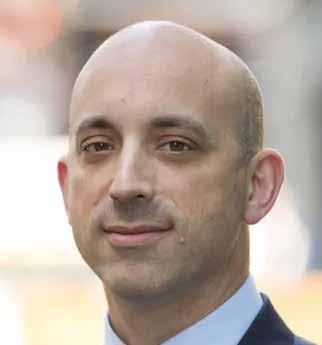








BY RABBI NAFTALI SCHIFF
Last week I wrote about the 3 words PIGS CAN FLY! Somebody sent me a short text saying “Naftali, you know that actually pigs don’t fly!” I didn’t respond.
As a parent, educator and builder of educational organisations and young leaders, I think it’s of critical importance to nurture the latent drive amongst young people to dream big and reach for the stars, even though at times the end goal may seem unachievable. As someone engaged in encouraging and propelling young people to aspire to great achievement, if we want the next generation to shoulder responsibility, for the themselves and for the community, I believe there needs to be a bolder narrative of YES, YOU CAN, rather than all the reasons why you can’t.
This attitude must begin at home and at school. I remember sitting at a parents evening years ago whilst the teacher informed our daughter that she would never achieve a good grade in a particular subject. Communicating with such a dampening, negative and defeatist attitude to a young person sends them a terrible message of “can’t do”. The repercussions for life can be devastating. It was GCSE Maths, not a professorship! Why not tell them that if they work hard, put in the effort, believe in themselves, provide them with extra help, then they can do it? We tried that. It resulted in an A grade.
How many times have I been told by well-meaning people in the community that “it can’t be done? You’ll never succeed! It’s too big, too optimistic! Nobody has ever! Nobody will…”
Rabbi Sacks z”l launched his renowned Chief Rabbinate in the 90’s with the aim of combatting assimilation and intermarriage in the UK. There weren’t that many local initiatives at the time with this focus and with a proven track record at making an impact in this crucial area. It was round about this time that Aish launched its Jerusalem Fellowships student scholarship educational trip to Israel. By the late 90’s it was already a runaway success in attracting, inspiring and empowering young British Jews aged 18-30. In 2003 a MORI survey provided due diligence to the community as to its impact on Jewish engagement, commitment, leadership and continuity. Against the shocking backdrop of 50% assimilation, the resounding Jewish Continuity PR campaign had launched with the thought-provoking question “Will we have Jewish Grandchildren” depicting a generation of young Jews toppling off the proverbial cliff. As a young Rabbi I was moved by Rabbi Sacks dream of abating the disengagement
of young British Jews, of inviting them back to reconnect via meaningful Jewish connection and his vision in nurturing greatness, aspirational thinking and empowerment of young leadership. And yet, despite our tremendous success in engaging significant numbers of hitherto disillusioned young people and the growing financial support of generous people in the community, there was always and dare I say remains a sluggish, pessimistic culture of frustratingly small thinking from many quarters of the Anglo Jewish establishment.
I remember nearly 30 years ago a communal philanthropist actually berating me for “thinking too big”. He told me that if we had been successful with 80 students participating in the Jerusalem Fellowships that year, why on earth would I be aiming to achieve 1000 per year by 2000? Perhaps this is a reflection of the British tendency towards understatement but in my experience, it is a weltanschaung and attitude that short changes our own families, community and future! It was misplaced then and in a post October 7 world, one which urgently needs to change now if our younger generation is to be empowered to write the next chapters of our collective story.
I remember about 25 years ago leading an Aish group of 100 Jewish students into the IDT building in Newark. We were there during a student Fellowships trip we had reworked to take place in NY in place of Israel due to the outbreak of hostilities there. (Incidentally, the same person criticised that decision too!) The foyer of the building that housed the business empire of American entrepreneur and philanthropist Howard Jonas, was decorated with a few motivational quotes. (his autobiography carries the title- “On a Roll” and tracks his humble beginnings manning a hot dog stand and achieving huge success in a short time) The line that jumped out at me was attributed to Ronald Reagan. It read- “America is too big for small dreams!” It resonated powerfully with me. If America is too big for small dreams, I surmised, how much more so is small thinking inappropriate for any Jew! We are a people who deny the odds, circumvent the norm, outlive the naysayers, compete with the Goliaths, and win! That’s why you’re still a Jew and reading this. Naturally, we should be extinct. If we’re here, let’s message the children of our community with “YES YOU CAN!”, now let’s figure out how.
Often people will say to me things like - “you don’t need to get the whole job done; just do your best!” Those well versed amongst them will then follow up quoting the famous Mishna from Pirkei Avot in which Rabbi Tarfon teaches “it is not upon you to finish the job, neither are you free to desist from it!” as the great get out clause of lofty aspiration! However, I was taught the mishna with a slightly
different understanding which makes all the difference. “It is not upon YOU to finish the job” because the extent to which you appreciate that in reality you are incapable of doing anything, that all success is actually in His hands, and He has no limitations, that’s precisely why you are not free to desist, (from aiming for the sky!)
During my basic training with Givati Infantry Brigade 40 years ago, we were on a long training march somewhere in the Negev. We had already completed about 30 kilometers and were only about half way through in full combat gear when the training officer leading us set a new pace at a jog! For some inexplicable reason I wasn’t fully focused on where I was going and mistakenly ran headlong into a telegraph pole half concussing myself. I was brought round by a sergeant throwing a canteen of water over my face with the order “Schiff get up! Carry on marching!” I replied ani lo yachol - I can’t and really, I was seeing stars- I couldn’t! He replied with a classic IDF turn of phrase- “Schiff, lo yachol ze ben dod shel lo rotze! Ata yachol! Kum al haraglayim vetamshich! Yalla!”
Loosely translated “YES YOU CAN”
I did!
Isn’t that the type of stuff that has seen our magnificent younger generation rise up post October 7th to vanquish enemies on 7 fronts? Isn’t that the secret of our rebirth after the Holocaust? Isn’t that the attitude that has ensured our survival for 3300 years? Isn’t that the message we must give to every young person we meet?
YES, YOU CAN!
Shabbat Shalom.
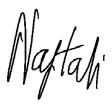
///What3Words is a geocoding system that has divided the world into a grid of 57 trillion 3-by-3 squares, each of which is identified by a unique three-word address. In this column, Rabbi Naftali Schiff reflects upon three words each week, relating to core issues of the day.
Rabbi Naftali Schiff is the Founder and Chief Executive of Jewish Futures
JEWISH FUTURES TRUST LTD | FULL TIME – SALARY COMMENSURATE WITH EXPERIENCE
Jewish Futures is a large, Jewish educational charity that serves as an umbrella body for a variety of charities and organisations. We are committed to delivering focused strategies within the Jewish Future’s Trust (JFT) family, striving to make a meaningful impact in the community we serve.
A unique opportunity has arisen for a Chief Financial Officer (CFO). The successful candidate will be an experienced accountant (ACA/ACCA/CIMA qualified) leading a finance team of four staff members. As CFO, you will manage the day-to-day operations of the finance function, delivering timely and accurate reports to senior management while working closely with various members of the JFT team.
ARE YOU?
• An ACA/ACCA/CIMA qualified accountant with a minimum eight years’ post-qualification experience (PQE)
• An experienced senior manager of a finance team
• Passionate about working for a group of Jewish charities committed to making a difference in the community
Thursday 10 - Monday 21 April, 2025 (11 Nights)

Experience the ultimate family-friendly value Pesach getaway at our 5-star beach front At Herbal Luxury Hotel, Cyprus


5 Star hotel with Indoor & Outdoor pools
Finest interior 120 rooms: Superior, Deluxe and Suites
Boutique Program Exclusive to 300 guests
Glatt Mehadrin, Non Gebrochts, No Kitniyot
Gourmet Meals & Culinary Delights
Grand Kiddush on Shabbat & Chag
Tea Room & Pool Bar
Engaging Shiurim by R’ Brendan Stern & R’ Dr. Laibl Wolf

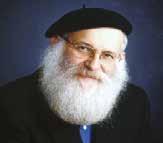
PriceStarting5900€ per occupancydouble[4% tips & taxes]

Kids Club & Teen Activities
Nightly Events & Shows
Professional Kosher Travelers hosts
Sauna, Gym, Wellness Spa
Local Attractions & Day Tour options [€]
Airport Transfers & Car Rental [€]
40min from Larnaca Airport

Music & Entertainment by Avrumi Halpern
The Aleinu Conference brought together over 150 Rabbis, Rebbetzins and educators from across the UK for a transformative day of learning, inspiration, and connection. Now in its eleventh year, Aleinu is a joint initiative of Jewish Futures, the JLE, SEED and the Rabbinical Council of the United Synagogue. With Rabbi Efrem Goldberg, Senior Rabbi of Boca Raton Synagogue in Florida, as the guest of honour, participants left the event motivated to tackle the challenges of contemporary Jewish leadership with renewed passion and insight.
The day began with focused shiurim
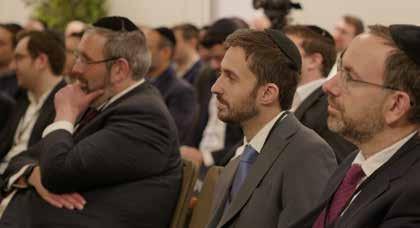
tailored to both men and women. Harav Shraga Feivel Zimmerman guided the men through the halachic and hashkafic complexities of assisted dying, whilst Rabbi Goldberg addressed the women with a deeply moving talk on Maintaining Our Emunah. Following these sessions, Dayan Menachem Gelley formally opened the conference, paving the way for Rabbi Goldberg’s keynote address, Beyachad Nenatzeach (Together, We Will Triumph). His message emphasized the importance of unity and resilience in leadership, resonating deeply with the diverse audience of educators, mentors, and community builders. The conference schedule featured a carefully curated series of sessions designed to address the most pressing challenges facing outreach professionals today. Discussions
explored topics such as technology’s impact on mental focus, strategies for managing complex relationships, and the interplay of free will and Divine knowledge. Renowned speakers, including Rabbi Dr. Akiva Tatz and Rebbetzin Dr Shanni Solomons, shared their expertise, offering both practical tools and profound spiritual insights.
Later in the day, Rabbi Goldberg delivered a second keynote address, The Role of the Rabbi and Rebbetzin in 2025, which explored the evolving responsibilities and opportunities for Jewish leadership in a rapidly changing world. His thought-provoking words challenged attendees to embrace their roles with courage and creativity, sparking meaningful conversations among participants.
The conference concluded with a lively Q&A session, where Rabbi Goldberg engaged directly with attendees, addressing their concerns with his characteristic warmth and depth. A gala dinner in the presence of Chief Rabbi Sir Ephraim Mirvis followed, celebrating the collective achievements of the Rabbis, Rebbetzins and educators who dedicate their lives to strengthening Jewish

BY REBBETZEN SHANA COHEN
For many young Jewish professionals, navigating entry to the world of work brings both exciting opportunities and complex challenges. Career advancements, expanding social circles, and the thrill of travelling the world often dominate their attention. Yet, amidst the flurry of activity, questions about identity, purpose, and long-term fulfilment quietly persist.
For some, their Jewish identity is present but not prominent, a background feature in a life focused on worldly pursuits. This subtle disconnectionfrom a heritage rich with meaning and wisdom—is something many don’t even recognise until the opportunity for deeper engagement presents itself.
For these individuals, Judaism often feels like an echo from childhood. There are fond memories of Friday night dinners with family, matzah on Pesach, or the occasional Shabbat candle lighting, but these experiences remain relegated to the past, seldom integrated into their adult lives. Their friend groups are
typically diverse, and their Jewish identity is something they might share with a select few—if at all. In professional settings or casual social outings, being Jewish might be an unspoken fact, a detail tucked away rather than celebrated.
Dating presents its own unique set of challenges. Some may date non-Jews without much thought, while others make a conscious effort to seek Jewish partners. Yet even those who prioritise dating within the faith often struggle to articulate why it matters. The depth and richness of building a Jewish home based on shared values and traditions may feel like a distant ideal rather than a tangible goal. In this sense, they’re navigating a maze of possibilities without a clear sense of what lies at the centre.
Many young professionals harbour a conflicted view of Judaism itself. Memories of childhood Jewish education— synagogue services, Hebrew school, or Bar and Bat Mitzvah lessons—may feel outdated and disconnected from their vibrant, modern lives. These early experiences, while well-intentioned, often fail to leave a lasting impression of relevance or excitement. The rituals of Judaism may appear to them as relics of
communities.
“The Aleinu Conference provided exactly what so many of us needed: a day to recharge, reflect, and reconnect with our mission,” said a conference participant.
“Hearing Rabbi Goldberg’s insights and engaging with colleagues from different organisations reminded us of the immense responsibility and privilege we have as leaders to inspire support others and find new and creative ways to do so.”

the past, lacking the vitality and accessibility that could make them come alive in the present.
They’re busy building their careers, expanding their networks, and immersing themselves in the opportunities of young adulthood, yet something feels incomplete. This drifting isn’t necessarily a conscious feeling, but it’s there: a quiet, persistent yearning for grounding, for a sense of purpose beyond the day-to-day grind. The question of “Who am I really, and what kind of life do I want to build?” lingers in the background, waiting for the right moment to demand attention.
This is where Aish steps in - not with judgment or demands, but with an invitation. Aish offers a space for young Jewish professionals to rediscover their heritage in a way that feels authentic, relevant, and empowering. It’s about providing a framework for them to explore their identity and values in a meaningful way. Through engaging events, thought-provoking classes, and a vibrant community, Aish creates opportunities for connection—to Judaism, to others, and to oneself.
Many begin to see their Jewish identity not as a piece of who they are, but as
the very foundation of a meaningful, purposeful life. Friendships within the Jewish community flourish, dating takes on a new depth of purpose, and their sense of self becomes more aligned with their values and aspirations.
For young Jewish professionals feeling that quiet drift, the question isn’t, “Why get involved with Aish?” but rather, “Why not?” In a world filled with noise and distraction, Aish offers something rare and precious: a chance to connect with the enduring relevance of Judaism in shaping a life of purpose and meaning.
Rebbetzin Shana Cohen
Shana hails from Passaic, New Jersey and works as part of the Aish team as an educator in the Young Professionals department. Before getting her Masters in Social Work from Rutgers University, she studied business, political science, and psychology towards her Bachelor’s degree at Touro University, and spent a gap year in Israel. She is full of creativity, enthusiasm, and is passionate about educating the Jewish people to reach their maximum potential.

A life’s story is more than just a collection of events and memories. It encompasses values, beliefs and heritage. At Legacy Live, we believe every story deserves to be captured and preserved as a precious keepsake for future generations. Our cinematic documentaries are expertly created by experienced former BBC television professionals and journalists, who understand the power of a life story and of passing on cherished lessons and values.
“I wanted my grandchildren to understand the values that have guided our family. The final result was nothing short of a masterpiece.”
“Without exception, all the family found it deeply emotional to watch. They also learned many things they hadn’t known before. My granddaughter, aged 9, even asked to watch it again!”
Everyone has a story. We can help you share yours.
Contact Debra - info@legacy-live.com for more information
Looking for answers? Send your question to
Dear Rabbi,
Since October 7th, we’ve witnessed an overwhelming surge of hostility toward Jews around the world. You’ve written eloquently about how Israel is often just an excuse for antisemites to express their hate, but in these past months, we’ve done everything we can to counter it. We’ve highlighted our plight in the media, marched in the streets, and rallied hundreds of people to stand with us. Yet, despite all our efforts, nothing seems to change, and the world feels just as bleak. What is your answer to antisemitism?
Josh
Dear Josh
You ask a crucial question, and I appreciate the honesty of your words. One of the most profound responses to antisemitism is the cultivation of Jewish pride and Jewish knowledgeability.
There’s a journalist who wrote a book titled Ten Percent Happier, where he shares his journey of incorporating meditation practices to improve his life by a modest ten percent. Inspired by that idea, I would suggest this to every Jew: “Get ten percent Jewier.” Wherever you are in your Jewish life—whether in practice, study, or connection to community—take it up a notch. Add just ten percent more. It’s easy to feel paralyzed by the weight of the world’s hostility. But a ten percent shift is manageable and impactful. Don’t aim for an overwhelming change—like doubling your efforts—because it’s unsustainable. Instead, take a thoughtful look at your life and ask yourself where you would like to grow. How can you and your family deepen your Jewish commitments, knowledge, and identity? Whether it’s celebrating Shabbat more fully, attending synagogue more regularly, or studying Jewish texts, choose a path and make it ten percent more intentional. This personal growth is not about replacing public advocacy like marches and media campaigns, which are undeniably important. But fostering Jewish pride and strengthening our community from within creates a lasting foundation. It ensures that we’re not only reacting to antisemitism but proactively nurturing a vibrant Jewish future. In summation the ultimate answer to combating antisemitism is by deepening your connection to what makes you Jewish. That strength is unshakable and enduring, and it is the most powerful response we can offer.
Dear Rabbi,
There’s much talk about a partial hostage deal on the table. I know this has mixed responses and I wonder what your thoughts are on the matter. Is a little better
than nothing?
Deborah
Dear Deborah
There’s no easy answer here, especially when we’re talking about finally getting some precious souls home, even as others still languish. That said, let’s consider the following:
After Oct 7 everyone thought Israel would cave. That Israel would take a quick lump out of Hamas and then accept a ceasefire to negotiate on the hostages. Hamas believed it. Hezbollah did too (it is why they entered the war). So did Iran. They thought they could all threaten, attack Israel and make wild statements because they all believed the war would be negotiated out quickly like earlier ones were.
But they soon realised this one was different. This is why the global Hamas propaganda campaigns on our streets all called for an immediate ceasefire. The hard-left and Islamist politicians supported the call. All acting as Hamas and Hezbollah puppets. They wanted a ceasefire on good terms for Hamas - so they could say Hamas had bloodied Israel’s nose and won.
But they all underestimated the Israeli anger and resolve. Israel did exactly what it needed to. It ignored all those calling on it to negotiate a bad deal. Israel did not stop. This caught the Iranian axis in a war they did not expect. One in which Israel just kept going. Israel demanded the terrorist surrender and a return of all the hostages. Israel refused to return to Oct 6.
This is why the terrorist axis also turned to its friends in the ICC, ICJ, UN, Amnesty and so on - all to add pressure. It became a desperate action - trying to save themselves because they were losing the war.
The Hamas propaganda arms in western media churned out endless material in the hope it would create additional western political pressure. Look at the countless posts from some anti-Israel journos - or UN spokespeople - high pitched squeals from all of them.
For a while there was relentless international pressure. A well-oiled international campaign to salvage Hamas and make Israel lose. But the ICC, ICJ - political condemnations - the South African, Irish and Spanish actions - none of it worked.
In the end all of Hamas propaganda actions failed. Hamas has been reduced to a pulp. Islamic Jihad too. Hezbollah was badly weakened and needed to save itself, the Iranian military were badly embarrassed, and even Assad in Syria fell as a result.
The entire Iranian terror axis made a terrible miscalculation. Israel refused to accept a bad deal.
Israel did exactly what it needed to do. Ignored the Hamas propaganda noise in the west - saw through the illegitimate ICC and ICJ attack - and the IDF
defended Israel and Israeli citizensknowing there could be no return to October 6. In the end Israel beat up all those who had attacked it. Reasserting a deterrent - reducing the Iranian axis to its knees - and sending a message to the world that attacking Israel is a very bad idea. Capitulating now to a bad deal, would be an indescribable and frankly unforgiveable catastrophe.


DEPUTY HEADTEACHER FOR THE BOYS’ SCHOOL L20 – L25 (OUTER LONDON)
REQUIRED – SEPTEMBER 2025
We are looking for a dynamic and inspirational individual to be responsible for leading the Pastoral, Behaviour, Standards and Inclusion at Hasmonean High School for Boys. If you are an exceptional leader with an outstanding track record in these areas, then we would like to hear from you.
For further details please visit our website https://hasmoneanmat.org.uk/ vacancies/
To request a brochure for the Deputy Headteacher role which outlines the job description and person specification, and an application pack, please email has monean@hayes.com or for a confidential discussion regarding the post please call Brett Coventry on 07879692409
Hayes is our search partner and supports our recruitment
Closing date: 12 noon Thursday 30th January 2025

2025 10 - 21 APRIL

BY SIVAN RAHAV-MEIR
In the book of Genesis there were matriarchs – Sarah, Rivka, Rachel, and Leah – who were singular women, unique in their generation. What sort of generation came after them? The book of Exodus introduces us to a generation that consists entirely of powerful women. This is our first encounter with a kind of Hebrew Wonder Woman, who has assumed mythological proportions down through the ages:
“Now the king of Egypt spoke to the Hebrew midwives, one who was named Shifrah, and the second, who was named Puah… Now it took place when the midwives feared G-d, that He made houses for them” (Exodus 1:15–21).
This is the description of two extraordinary Hebrew women in Egypt. Their

1st Aliya (Kohen) –SHEMOT 1:1-17
The Torah names the sons of Yaakov (Jacob) who came down to Egypt. Yosef’s (Joseph) death is recorded again. His brothers also die. The nation increases in number. A new Pharaoh comes to power, who subjects the nation to hard labour. Yet the more they are afflicted, the more they increase. The Egyptians intensify the labour. Pharaoh instructs the Hebrew midwives to kill newborn Hebrew males. They refuse, instead giving the babies food and drink (see Rashi’s commentary).
Point to Consider: What miraculous birth rate is hinted to in verse 1:7? (see Rashi)
2nd Aliya (Levi) – 1:18-2:10
Pharaoh commands the Egyptians to drown all newborn males in the River Nile. Moshe (Moses) is born.
legacy is one of faith in G-d in the face of a brutal dictator, having the courage to resist conventional thinking and behaviors, together with the willingness to take risks for the sake of the next generation, to persist in living the Jewish way.
Up until this point, our focus has been on the midwives. But there are other Hebrew Wonder Women. Notice what we are told immediately afterward: Amram marries Yocheved and Moses is born. What does his mother do?
“The woman conceived and bore a son, and [when] she saw him that he was good, she hid him for three months. [When] she could no longer hide him, she took [for] him a reed basket, smeared it with clay and pitch, placed the child into it, and put [it] into the marsh at the river’s edge” (Exodus 2:2–3).
That is, Yocheved is also a lioness, who
acts with the same spirit. And then Miriam appears, a little girl who acts like a mature woman of faith. According to the midrash, Miriam influences her parents to remarry – they feared they would have a boy who, by Pharaoh’s decree, would be thrown into the River Nile – and never lose hope. So Moses is born and his sister Miriam watches over him from the river’s edge:
“His sister stood from afar, to know what would be done to him” (Exodus 2:4).
This is a breathtaking passage. Some of the commentators explain that Miriam, being a prophetess, knew that everything would turn out okay, that salvation would come, except she did not know how it would happen. Therefore, she was not under duress, she was just standing there, waiting to see how things would work out for the best. “His sister stood from afar, to

know what would be done to him,” and then a third woman enters the picture: “Pharaoh’s daughter went down to bathe, to the river… ‘This is [one] of the children of the Hebrews’” (Exodus 2:4–5). If previously it was only the Hebrew midwives, and then a Hebrew mother and her daughter, who opposed Pharaoh, now the daughter of Pharaoh herself joins in opposing him. This is an impressive, powerful display of sisterhood, and these women would become heroic figures in the history of Am Yisrael.
Sivan Rahav-Meir is the World Mizrachi Scholar-in-Residence and an Israeli journalist and lecturer. She is a member of the Mizrachi Speakers Bureau (www. mizrachi.org/speakers).
After hiding him for three months, his mother Yocheved places him in a basket in the reeds at the riverbank. Pharaoh’s daughter retrieves the basket and identifies the baby as a Hebrew infant. Moshe’s sister Miriam, watching from afar, offers to get a Hebrew nurse. Pharaoh’s daughter agrees; Miriam brings Yocheved, who looks after him until he is weaned. Moshe is then brought up in Pharaoh’s house.
3rd Aliya (Shlishi) – 2:11-28
Moshe encounters an Egyptian striking a Hebrew; he kills the Egyptian. Pharaoh hears of Moshe’s crime. Moshe flees for his life, arriving in Midian, where he meets the daughters of Re’uel (also known as Yitro) by a well. Moshe marries Re’uel’s daughter Tziporah. They have a child, called Gershom. G-d hears the Hebrews in Egypt crying out because of their hard labour.
4th Aliya (Revi’i) – 3:1-15
Moshe, shepherding Yitro’s flock, arrives at the ‘Mountain of G-d’. He encounters a fiery blaze in a bush, which is not consumed by the flames. G-d appears, instructing Moshe to take off his shoes. G-d tells Moshe that He will rescue the nation and that Moshe should go to Pharaoh and instruct him to let the nation leave Egypt.
5th Aliya (Chamishi) – 3:16-4:17
G-d reassures Moshe that the elders of Israel will respond to his call. Moshe is to request from Pharaoh that he let the Hebrews out for three days, to bring offerings in the desert. Pharaoh will refuse, after which G-d will smite Egypt with plagues. G-d empowers Moshe with three signs to show the people – a staff that turns into a snake, his hand turning white with the appearance of leprosy and water taken from the Nile turning to blood. Moshe is reluctant

to take the leadership. G-d tells Moshe that his brother Aharon can be his spokesman.
6th Aliya (Shishi) – 4:18-4:31 Moshe returns to Egypt from Midian. G-d tells Moshe to warn Pharaoh that He will eventually kill the Egyptian firstborn if Pharaoh refuses Moshe’s requests (Rashi). Moshe fails to circumcise his new-born son Eliezer when they stop in lodgings on the way; Tziporah does it instead. Aharon greets Moshe, who relates G-d’s words to him. Aharon in turn relays these words to the people. Moshe performs the three signs.
7th Aliya (Shevi’i) – 5:1-6:1 Moshe and Aharon approach Pharaoh. Pharaoh refuses their requests and increases the work load. The people complain to Moshe and Aharon. Moshe asks G-d why He sent him, if his intercession has only made life more difficult.
HAFTARAH
The prophet Yeshaya (Isaiah) depicts how low the nation of Israel has stooped and bemoans the drunken arrogance of the tribe of Ephraim and the other lost tribes. However, one day a great shofar will be blown and all those cast away in foreign lands will return to Jerusalem.





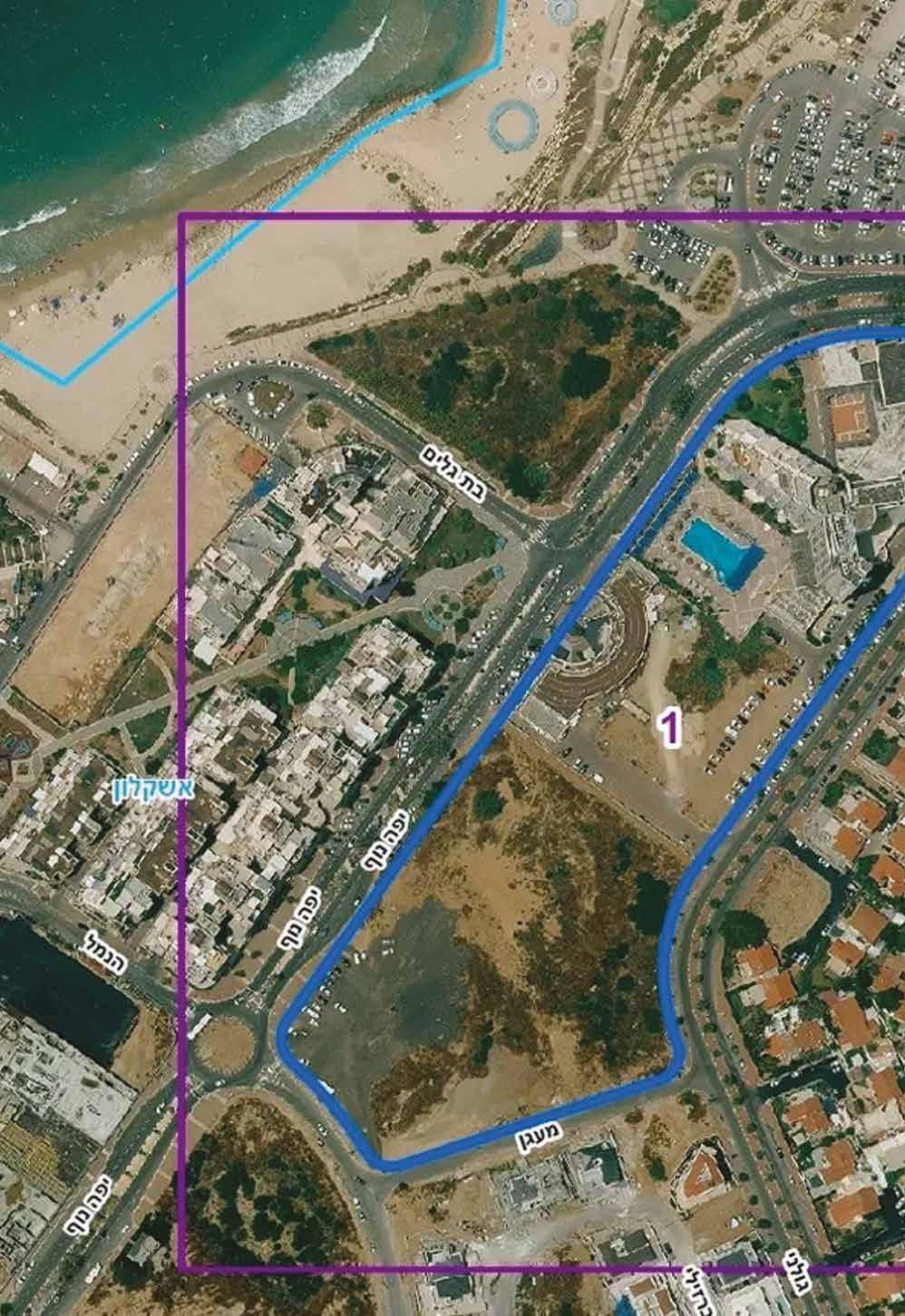

BY RABBI SHAUL YONATAN TAWIL
The Gemara Sotah (11a) tells us that Pharaoh had three advisers: Yitro, Iyov and Bilam. Pharaoh wished to decide how to deal with the Israelite “problem”. He sought the opinion of each of his three advisers. Bilam was an evil man and relished the prospect of eradicating the Jewish people. He advised Pharaoh to kill the male Israelites.
Iyov was opposed to any plan to destroy the Jewish nation. Rather than display his true feelings on the issue, he refrained from offering any opinion and he remained silent.
Yitro on the other hand, vocally rejected Pharaoh’s idea of exterminating the Jewish people. Yitro believed it was wrong that these people should be made to suffer for no crime other then being Jewish. Yitro’s loud protests angered Pharaoh and Yitro had to flee Egypt in order to save his life.
The Talmud continues by telling us that each of the three advisers were rewarded or punished according to his deed. Bilam was killed by the very people he sought to exterminate. Iyov, who remained silent in the face of Jewish oppression, was afflicted with a life of pain and suffering. Yitro, who fled because of his opposition, sacrificing his position of leadership and life of comfort and wealth in Egypt, eventually became the father-in-law of Moshe and his descendants merited serving as prominent judicial leaders in the Sanhedrin.
burden of ones fellow. Why should participating in the burden of one’s fellow enable us to acquire Torah?
Hashem gave Am Yisrael the Torah as a nation. We were all there at Har Sinai, in fact all the future souls of our nation were there. The Torah was not handed down to one individual; rather it was handed to the nation. One of the intrinsic messages in this action was that in order to uphold and learn this Torah, there needs to be unity. One needs to see himself as part of the other person, one big family.
Choosing a leader isn’t easy. When it came to redeeming Am Yisrael, Hashem chose Moshe from the tribe of Levi. What actions reveal Moshe’s potential as a leader, and what was so special about the tribe of Levi?
When the Torah relates the lineage of Reuven, Shimon and Levi (Shemot 6:14-16), the Torah states the sons of Reuven... The sons of Shimon... yet when it comes to Levi, the Torah states “These were the NAMES of the sons of Levi…” Why does the Torah emphasize the names of Levi, whilst those of Reuven and Shimon are seemingly ignored?

Hashem dealt Mida Keneged Mida – measure for measure with all three of them.
On retrospection one can understand both Yitro and Bilam’s reward and punishment, yet it is difficult to comprehend why Iyov’s punishment was so severe. In fact, even if Iyov had objected, Pharaoh would have still enacted his decree. Iyov’s only sin was remaining silent. Why then did he have to suffer such a harsh life, where tragedy followed tragedy?
The Mishnah in Pirkei Avot lists 48 ways to acquire Torah. We are taught for example that studying, listening and minimising one’s sleep are all ways of acquiring the Torah.
One way out of the 48 seems to stand out. The 39th way is - Nosei Be’ol Chaveiro – participating in the

The Sh’lah HaKadosh (Rav Yeshayahu HaLevi Horowitz) explained that in Egypt the nation were subjugated to servitude. The tribe of Levi however were not. One might have expected them to enjoy this status and “forget” about their brothers. It is to this that the Torah emphasises the names of Levi’s children. He named his sons after his brothers’ bondage. “Gershon” -- for they were “Gerim” (aliens) in a foreign land. “Kehat” -- for they gritted their teeth in their suffering. “Merari” -- for their lives had been embittered (Maror). Levi wished to actively participate in his brothers’ anguish, identifying with them in their times of stress and he named his sons accordingly. It is for this reason the Torah stresses their names.
Similarly, the Torah relates that “Moshe grew up, and he went out amongst his brethren and he saw their suffering” (Shemot 2:11).
Moshe was a prince in Pharaoh’s palace. He had everything going for him. Yet he knew his identity and he yearned to relate to his people.
The Midrash comments that Moshe saw their suffering and cried: “How my heart goes out for your suffering! If only I could die for you, to spare you your suffering.” Moshe removed his princely garments and went out into the field to try to help his brethren make the bricks and mortar, just so that he could be a part of their pain.
According to the Midrash, Hashem said to him: “You left your comforts to participate in the pain of Israel as an equal; I will leave the company of the Higher Ones so that I may speak with you.”
distressed and he acted accordingly.
The Alter of Kelm comments that earlier we find the Torah relates that “Hashem Saw and Hashem Knew” (that the time had come for redemption) (Shemot 2:28).

Rashi, explaining this verse, uses virtually the same expression as he did concerning Moshe: “G-d placed his eye upon them and did not remove his heart from them.” The Alter of Kelm explains that G-d was inspired - as it were - by the actions of Moshe. It was Moshe’s own similar actions that triggered G-d’s looking at and taking to heart, so to speak, the troubles of the Jewish people. Such is the power of Am Yisrael, when we are together, when we truly feel for our brothers and sisters; then Hashem’s redemption is sure to follow.
We can now understand why Iyov suffered for his silence. Iyov was not sure what possible good would come out of him voicing resistance to Pharaohs evil edict. He reckoned it would not change anything. Even if Pharaoh would not change the edict, he still should have voiced his opinion. When Iyov personally suffered, then he did not remain silent, rather he raised his voice beseeching G-d.
Thus Iyov’s punishment stirred him to react in a manner that in turn demonstrated the error of his failure to raise his voice in protest against Pharaoh’s heinous plan. I was once in Yerushalayim talking to a Gadol Hador when an ambulance with its sirens wailing whizzed by. The Gadol stopped in the middle of talking to me, and with his eyes closed started to say a prayer. At first it didn’t hit me, but then I realised what had happened. The Rav didn’t see the ambulance as a piece of scenery in the background. He saw it as a person in distress, a person who is being rushed to hospital, a person in need of help. This is how we must approach the suffering of our fellow Jews.

Just as we share in our nations sorrow, so too may Hashem Bless us to always share in our people’s Simcha Bekarov. Amen
Rabbi Tawil is the Founder and Director of ‘Torah Action Life’ (TAL)
It is for this reason that Moshe was chosen as a leader. A leader must be able to see beyond the physicality to delve deep and feel the emotional suffering as if that suffering is happening to him. Moshe felt it, he was




Our mission is to make property ownership and renting a seamless and rewarding experience. Whether you're a landlord seeking peace of mind or a tenant looking for a well-managed home, we provide a full range of services to support every stage of the property management process. Here’s a closer look at how we handle property management from start to finish, along with the specific services we offer.
1. Property Onboarding and Marketing The process begins with a thorough property onboarding, where we ensure your property is fully ready to be placed on the market.
Our services include: Property Assessment: We evaluate the property’s current condition and suggest any needed repairs or improvements to maximize its rental value.
Professional Photography and Listings: High-quality images and detailed listings help your property stand out, attracting quality tenants. Strategic Marketing: We advertise on multiple platforms, targeting prospective tenants through online listings, social media, and local networks.
Finding the right tenant is crucial for a successful rental experience. We handle the entire screening process to ensure reliable and responsible occupants:
Comprehensive Background Checks:
We verify employment, check credit scores, contact previous landlords, and conduct background checks to ensure tenant reliability.
Lease Preparation and Signing: We prepare and manage lease agreements, covering all legal aspects to protect both landlords and tenants.
Move-In Coordination:
We ensure a smooth move-in process by completing an initial walkthrough and documenting the property’s condition with a checklist.

Our property management services include rent collection and transparent financial reporting to keep landlords informed and tenants accountable:
Automated Rent Collection: We use a reliable, user-friendly system for rent collection, minimizing delays and ensuring timely payments.
Financial Reporting: We provide monthly and annual statements with detailed breakdowns of income, expenses, and any maintenance costs.
Handling Late Payments: We manage any issues related to overdue rent, following legal procedures to ensure compliance and maintain professionalism.
Regular maintenance and prompt repairs are vital for tenant satisfaction and property upkeep. We oversee all maintenance tasks with a network of trusted contractors:
Routine Inspections: We conduct regular property inspections to identify any necessary repairs and ensure compliance with safety regulations.
24/7 Emergency Repairs: Our team is available around the clock to handle urgent repair needs, providing peace of mind to both landlords and tenants.
Preventative Maintenance: We schedule routine maintenance tasks, such as heating and plumbing checks, to avoid costly issues down the line.
Navigating regulations and legal requirements can be complex, but we handle all aspects of compliance for you:
Safety Compliance Checks: We ensure that properties meet all legal safety standards, including smoke detectors, carbon monoxide alarms, and emergency exits.
Legal Assistance: Our team stays up-to-date on property law changes and manages eviction proceedings if necessary, ensuring that landlords comply with all legal requirements.
Our services cover every aspect of property management, from initial tenant placement to ongoing maintenance and legal compliance. By working with us, landlords can enjoy the benefits of a well-managed property without the day-to-day hassle, while tenants gain access to a reliable, responsive support team. If you’re looking to make the most of your property investment or are seeking a better rental experience, contact us today.

Hampshire Heights are experts in HMO property management.

Pharaoh, the king of Egypt, is worried that there are too many Jews, and they are becoming too powerful. So he decides to enslave them, forcing all the Jews to do backbreaking labor working in the fields, shlepping bricks and building cities for him. Next he calls in the two Jewish midwives, Shifrah and Puah, and tells them that whenever they are helping a woman give birth, if a boy is born, they must kill him. But the midwives know what a horrible thing to do that is, so they don’t listen to him. So Pharaoh makes a new decree that all Jewish newborn boys must be thrown into the Nile River.
Now, Jocheved gives birth to a son, and of course, she is afraid that he will be killed, so at first, she hides him in her house. But then, when she is afraid that the Egyptians will find him, she makes him a little waterproof cradle and hides it in the
long grasses near the edge of the river. As it happens, Pharaoh’s daughter comes down to the river to bathe, and she notices this strange little basket floating in the river. She sends her maid to get it and sees a crying little baby inside! She names the boy Moses, and decides to take him home and raise him as her son. That’s how it happens that Moses, a Jewish boy, grows up in the palace.
When Moses grows up, he goes out and sees the hardships that his people, the Jews, are experiencing, and it really bothers him. One day, he sees an Egyptian beating a Jew. He is so angry that he kills the Egyptian. When he realizes that he might get into trouble, he has to escape Egypt and runs off to a faraway country called Midian. There, he helps the daughter of Jethro and marries one, Tzipporah, and becomes a shepherd to his father-in-law’s
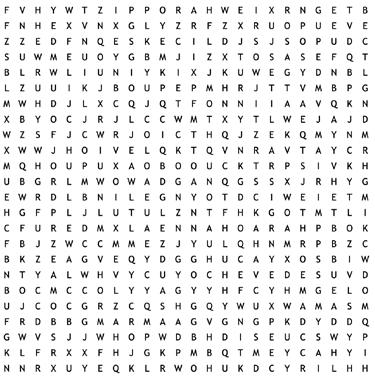
flock.
One day, while Moses is taking care of the sheep, one of them runs away. Moses goes after it, and he sees an amazing thing: a burning bush that is on fire, but not actually burning. There, he hears G-d speaking to him, telling him to go to Pharaoh and take the Jews out of Egypt. At first, Moses doesn’t want to do it, thinking, “How can I be a messenger of G-d? And what if the Jews don’t listen to me?” So G-d gives him three signs. In one, he picks up a stick, and it turns into a snake; in the second, he puts his hand into his jacket, and it becomes all scaly; and in the third, G-d tells him that if they still don’t listen, he should spill water from the Nile river onto the ground, and it will become blood. Moses then explains his worry that he cannot talk clearly, so G-d appoints his brother Aaron as his spokesperson.
When Moses returns to Egypt and tells the Jews that he has come to rescue them, they believe him and are very happy. But then he goes to Pharaoh and passes on G-d’s message that he should let the Jews out of Egypt. Pharaoh responds saying, “Who do you think you are? Stop disturbing the Jews from their work!” And on that very day, Pharaoh orders that the Jews’ labor should become even harder.
The work is so hard that the Jews cannot do it, and the Egyptian taskmasters beat them. When Moses sees what has happened, he cries to G-d. “What have You done to the Jews? Why did You send me? Since I came to Pharaoh, he has only made things worse, and You didn’t come to save them!?”
So G-d promises that he really will save the Jews. But we have to wait until next week to find out how He does it.
Number of Verses - 124
Number of Lines - 215
Number of Words - 1,762
Number of Letters - 6,762
Last week’s answer: Which verse do we say every day in the prayers, that starts and ends with the same three words in the same order?
The answer is:
The last verse in the third paragraph of the Shema. It starts and ends with the words ‘Ani Hashem Elokaichem’ - ‘I am Hashem, your G-d.’ However, we add the word ‘Emet’ (True) at the end of the verse in order to say ‘Hashem Elokaichem Emet’ - ‘Hashem, your G-d, is True,’ as in the verse in Jeremiah ch.10.
This week’s Question:
At the end of Moshe’s life, Hashem shows Moshe the entire land of Israel. But where does the Torah indicate that Moshe saw Chevron long before that?
Using all the shapes, can you make the shape on the right?
The goal of a word wheel puzzle is to create as many words possible with the letters in the word wheel. Each word must contain at least three letters. You can only use each letter once and every word must have the letter in the centre of the wheel.
Last edition’s words
Here are some words you may have found from last week – you may have found more!
O D A F D S L I F
Use the area below to write the words you have found.
Q: What is a witch’s favourite subject in school? A: Spelling!
Q: What kind of tree fits in your hand? A: A palm tree!
Q: How do you stop an astronaut’s baby from crying? A: You rocket!
Q: Why did the kid cross the playground? A: To get to the other slide!
1. What is it that after you take away the whole, some still remains?
2. A box without hinges, lock or key, yet golden treasure lies within. What is it? 3. Forward I’m heavy, but backwards I’m not. What am I?
